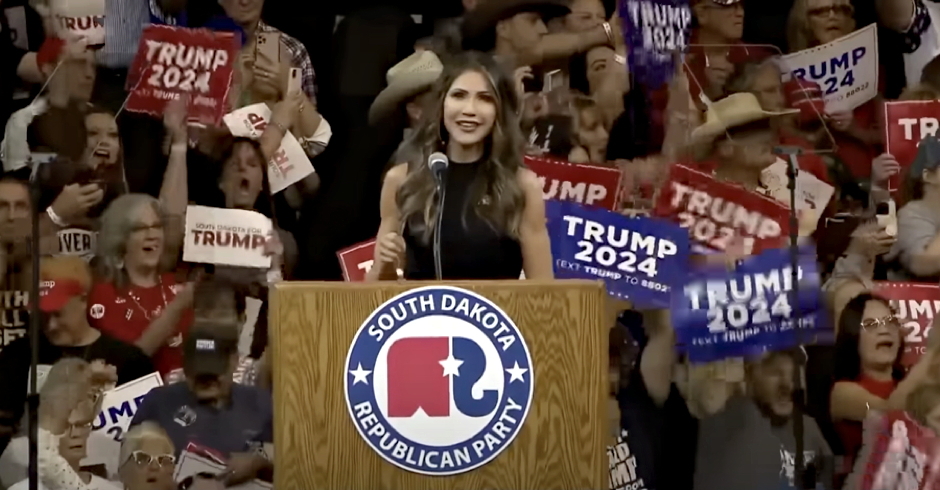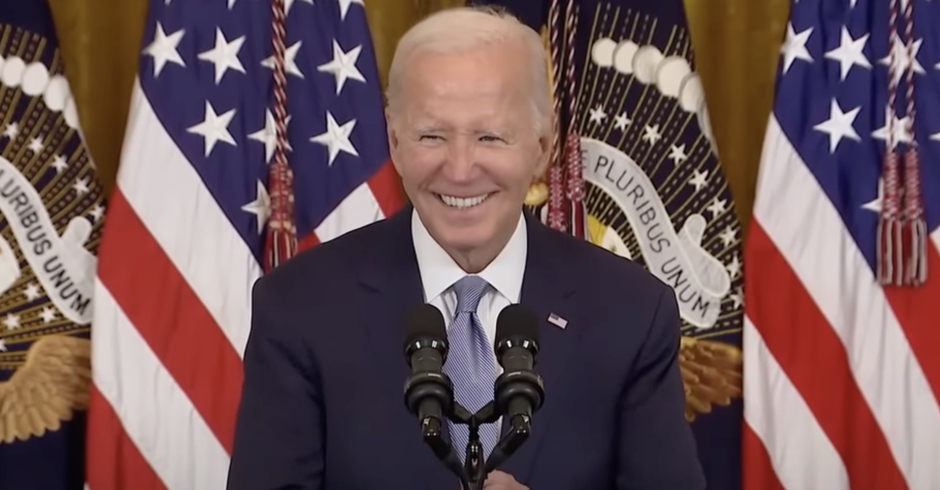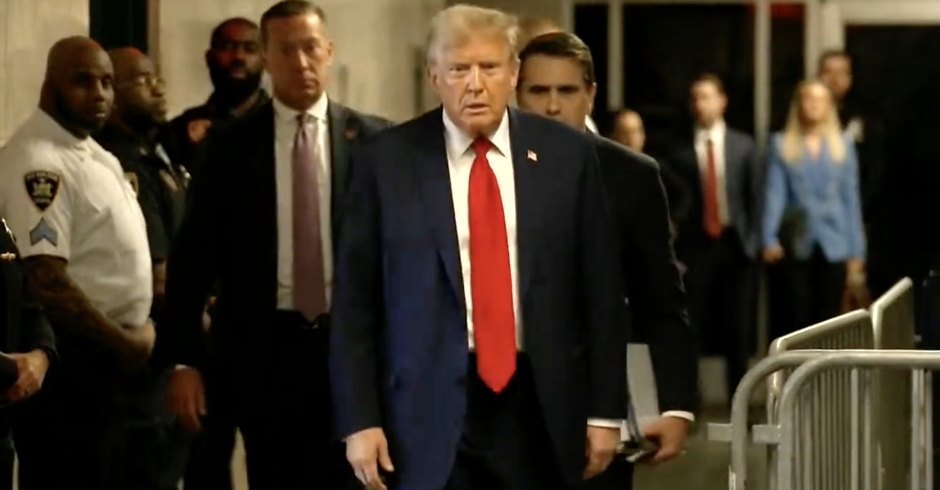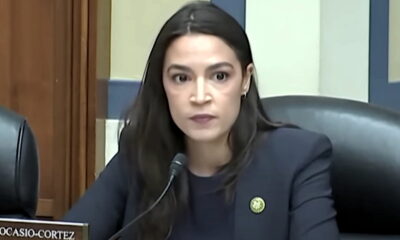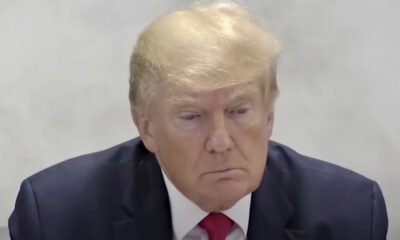GetEQUAL’s Wizard Advisor Paul Yandura: The Exclusive Interview
Paul Yandura was a consummate Washington, D.C. insider — in the early ’90s he debuted as an intern for then-House Majority Leader Richard Gephardt and went on to work at the White House as a staff assistant to Marsha Scott, the first White House liaison to the LGBT community under President Bill Clinton. Yandura worked on the Re-Elect Clinton-Gore Campaign in 1996, was an Executive Director for the National Stonewall Democrats (founded by Rep. Barney Frank,) and founded the first Democratic National Committee LGBT Leadership Council in 2000 that cultivated wealthy donors and leveraged gay votes at the highest levels of the Democratic Party (Photo: Paul Yandura, right, and his partner Donald Hitchcock at the 2008 Democratic National Convention).
Â
Those of us who have access or resources need to remember the millions of LGBT folks living in red states and other hostile places throughout the U.S. and the world, who don’t have the luxury of sitting around and accepting empty compromises, excuses and rationalizations in place of real progress.
Â
Yandura had it all–living a dream of achieving elite status, access to some of the most powerful people in the world, and yet it was not enough. Something happened to Paul Yandura, despite enjoying the halcyon pleasures of Washington’s political business–he was not equal as a gay man in America and finally recognized how little had been done to change his and his friends’ second-class status. This acknowledgement so radicalized Paul and his ideas about how to achieve equality for LGBT people that in early 2010 he helped found GetEQUAL, whose work has been transformational and can claim direct credit for helping pass the legal repeal of Don’t Ask, Don’t Tell (DADT).
Living a wonderful life as a partner in Scott+Yandura, a D.C. based public affairs company, and happily, for the past 13 years, romantically partnered with Donald Hitchcock, a gay activist in his own right, Yandura and Hitchcock recently completed certification for adoption and fostering in Washington, D.C. and are looking forward to becoming parents and plan to marry in the near future.
While collecting ‘Outsider’ and Folk Art created by artists out of the mainstream and the disabled, gives him happiness too, Yandura readily admits that what gets him charged up now is “to wake up everyday and demand change and demand that we be treated as full and equal citizens.”
Armed with relentless focus that is accompanied by a vocalized rat-tat-tat litany of unfulfilled promises, no doubt Yandura evokes fear in the hearts of traditional Washingtonians. He is a formidable adversary. Schooled and experienced in the ways of Washington thinking and acting, and empowered by access to money and resources, Yandura knows how to create chaos that can rattle the cages of powerbrokers who have historically controlled the LGBT political terrain without interference.
Not anymore. Free agent Paul Yandura is now running a full-throated, clenched-teeth, spirited and unending campaign for LGBT equality.
In an interview with the New York Times published June 29th to mark the Obama White House’s Pride celebration and its awkward timing following so closely behind the New York victory, Paul Yandura declared, pulling no punches, “People know a fierce advocate when they see one. Andrew Cuomo was a fierce advocate.” The White House is feeling a gut check. And so they should.
The New Civil Rights Movement is proud to bring you this exclusive interview.
Paul, you are a politico, a “D.C. insider†who worked in the Clinton White House and for the Re-Elect in 1996. How did you become a LGBT activist? What changed your “politics†over the years since you were sitting at the table of power in Washington, D.C.?
Several years ago I realized that many of my colleague insiders were continuing to make the same excuses and rationalizations we made in the 90’s. I also realized that if we continued to act like the best little constituency in the world we would never get equal. It became time to stop worrying about whether we would lose access or piss someone off for demanding our equality. I started asking harder questions and demanding more from our “friends and allies.” Those of us who have access or resources need to remember the millions of LGBT folks living in red states and other hostile places throughout the U.S. and the world, who don’t have the luxury of sitting around and accepting empty compromises, excuses and rationalizations in place of real progress.
It would be easy for me, as a white gay guy with resources and living in D.C. (with strong non-discrimination laws and marriage equality,) to accept the excuses and rationalizations for why we can’t push now for equality, or why it’s naïve to think we could force change, but for those still living in fear of losing their jobs or having their children taken away, discrimination is a lived reality every day. I think all of the executive directors of national organizations should have to live in a city and state that has no non-discrimination laws, so the urgency that others feel becomes real and not a political game.
After being an insider for years, I now get to wake up everyday and demand change and demand that we be treated as full and equal citizens—the insiders and others get to wake up and have to continually convince us how complicated it is, and why it’s just not possible at this time to be equal citizens.
What are the most salient lessons you learned from the 1990s, when you were inside the government, that you now use to inform and advise GetEQUAL and other groups on the best tactics and strategies to use to advance a LGBT equality agenda?
There are several lessons and rules that I have learned over the years that I find instructive. Most of my early experiences taught me what not to do, rather than what to do:
- Rules are created by those in power to keep power, not to create change. BREAK ALL THE RULES, UNTIL WE ARE EQUAL.
- In politics things can be as simple or as complicated as they want those in power want them to be—it just depends on whether they want to do them or not.
- You need to pick a fight to win a fight—the religious right learned this long ago and the conservative right really adheres to this rule, even when the facts, science, reality and everything else is not on their side.
- Time is no guarantee for progress, the fight and the struggle is what moves us forward. Â Martin Luther King Jr. talked about this and warned against the false hope of being patient and just waiting until attitudes soften or change. Equality will never come to the community if we just sit around and wait for it.
- Chaos and crisis are very strong political motivators (next to money and votes.)
- Tomorrow never comes.
- We need to act like a civil rights movement and stop acting like a political movement. We have to relentlessly demand our rights everyday at every turn, regardless of what political cycle or election cycle or legislative window we find ourselves in.
- Secrecy is necessary to hide failure, change has never come in secret.

Donald Hitchcock, left and Paul Yandura, right, holding a Frank Kameny sign at March on Washington, Oct. 2008
Â
What do you mean the LGBT community must act like a civil rights movement and stop acting like a political movement?
We don’t stop equality during an election…look at the suffrage movement and the civil rights movement, who never stopped working for change during elections—history shows us that elections are opportunities to be heard and force change.
The more shaky things are during an election, the more opportunity there is to make change. Pushing and being relentless advocates is not something that would make Obama lose the election and progressives will feel better about him when he is doing the right thing at exactly the right time.
You participated in the Dallas Principles meeting—what purpose did that meeting serve and how have its objectives and goals been realized — or not?
The reason I was excited about the Dallas meeting was simple. I had felt for far too long that we were good at training and shuffling around our community leaders and we were good at creating “experts,” but what we were missing were principled leaders and principled leadership. Our leaders who are on the inside bargaining and compromising on our behalf should be beholden to a set of principles. If they are confronted by our friends or enemies and a principle is broken they should stand strong and expose it.
If you look at the Dallas Principles, they are simple and we should be able to adhere to them. People say to me all the time, if we don’t compromise we won’t get anything—yet, most of the time we compromise AND get nothing. Same goes for those arguing for incremental change. D.C. marriage equality is a great example of real, successful incrementalism. Year after year, very smart local activists and insiders forced incremental change after change that stacked up to something very close to marriage equality and then when it came time for marriage equality it was that much easier because of the previous progress. Instead, especially on the federal level, we have seen year after year no increments but lots of compromise and excuses and arguments for incrementalism.
(Read the Dallas Principles.)
What compelled you to help found GetEQUAL—the first such organization since Act Up!?
It had been 30 years since the late Paul Tsongas had introduced the first civil rights bill for gays in Congress. And  I felt like we were stagnant and complacent as a community. We also had a dearth of principled leadership. And, it was clear that our friends and allies in the Democratic Party understood that we would always be reasonable and accept every excuse and rationalization in the book in place of full equality. They did not fear us. Crisis and chaos are important tools in politics.
If you look at the way the Employment Non-Discrimination Act (ENDA) was handled (controlled by insiders, shrouded in secrecy, chastising anyone who dared to question the strategy that the experts and insiders were secretly working on) compared to what happened with DADT repeal which was an uncontrollable, relentless, chaotic shitstorm–you see that DADT became impossible to ignore and they had to act.
It became clear that if we are not desperate and demanding then we could be ignored or placated. The protests and pushback that GetEQUAL, the bloggers and others created, changed the way that progressives and others viewed the issue. They created a relentless urgency for repeal. I will never forget the live shot on CNN of Dan Choi and Jim Pietrangelo handcuffed to the White House fence that first protest and hearing the announcer reverently narrating what he was seeing by saying, “look at their faces, look at that desperation, these guys wouldn’t do this unless the situation had become desperate.†We saw the visual from that point forward for Don’t Ask Don’t Tell repeal changed from being a photo of dogtags and rainbows to protesters and handcuffs. That imagery mattered; it became iconic and relayed a completely different story.
A lot of people have asked me whether I will be voting for Obama next year and I actually think that’s the wrong question to ask this far out. The question we should be asking is has he done what he promised and can he do more before the first term is over?
Â
We were lucky that a donor (Jonthan D. Lewis) was smart enough, bold enough and frustrated enough to try something completely different and new and that a whole new generation of LGBT activists was ready to take the helm of a new organization and movement. We were also lucky that the donor and the leadership of GetEQUAL did not want access, an appointment, an ambassadorship or any other patronage, they wanted one thing–to be equal.
What do you think about the Obama followers who continue to spout the “first gay appointee†for this or that? There seems to be a steady drumbeat of that sort of thing by some supporters. Do you think Obama is really going to do the right thing by fulfilling his promises to the LGBT community? What do you make of his “thoughts are evolving on gay marriage†comments?
A lot of people have asked me whether I will be voting for Obama next year and I actually think that’s the wrong question to ask this far out. The question we should be asking is has he done what he promised and can he do more before the first term is over? Of course I am going to vote for him, I have never voted for a Republican in my life and I don’t think that the opportunity will ever-present itself in my lifetime, especially when you look at how conservative and backwards many of them are.
I don’t know anyone who thinks that any of the Republican presidential candidates would be better for the community, but, I do think it is fair to keep demanding that President Obama live up to his rhetoric and promises made during the campaign.
You hear a lot these days about how President Obama has done more than any other President ever “on the federal level”–but the truth is that even if he just passed Hate Crimes you could probably say that as well. There is a distinct difference between saying that he has done more than President Washington, Adams, Jefferson, Lincoln, Reagan, Carter and all the others combined…and comparing what he promised he would do to what he has done. It’s that simple.
(Yandura’s position on Obama’s “slim accomplishments” is explained in the Advocate’s article titled “Obama:  The Good Enough President.”)
What could President Obama do today to make things better for LGBT people in America?
President Obama said in his speech on Wednesday that he made good on his promises. Â But the problem is that he has not made good on his promises. Â It is tricky, but what the president was saying was that he made good on the promises he made at the first White House pride celebration–but we should be judging him on the promises he made as a candidate when we raised money and voted for him.
According to Yandura, from the donor side and with groups like GetEQUAL and Equality Matters, among others, they have been advocating for the following initiatives and reforms since Obama’s election in November 2008:
1. Â Count and include LGBT Americans
- Direct the federal government to include LGBT Americans in all federal level data collection efforts. (The allocation of federal funding and research dollars are dependent on data collection, from which our community has been historically excluded.)
2. Â Prohibit Federal Funds from Being Used To Discriminate Against LGBT Americans
- Add sexual orientation and gender identity to President Johnson’s executive order 11246, mandating employment non-discrimination policies for all federal contractors that receive federal funding.
- Create non-discrimination policies that include sexual orientation and gender identity for all entities receiving or applying for federal grants.
3. Â Enact an Employment Non-Discrimination Policy for the Federal Government (including the military)
- Prohibit discrimination against members of the US military on the basis of their sexual orientation or gender identity.
- Add gender identity protections to President Clinton’s executive order 13087, which protected civilian federal workers from employment discrimination based on their sexual orientation.
4. Accelerate progress on the over 192 individual department and agency specific requests presented to his transition team in December 2008
What do you think the LGBT movement can accomplish if Obama is reelected? And what should the community aspire to in the next 25 years?
I think Obama has been an amazing opportunity for the community to learn that we need to fight for our rights and we need to demand that our friends act like friends and not just by-standers. The community seems to be waking up, and the younger generation is no longer happy with empty gestures and talk. They have a much healthier self-esteem because they grew up being able to enjoy the better conditions that many generations before them toiled to create—and they are no longer willing to sit at the table rubbing their stomachs moaning about how full they are after being served crumbs, just so they are liked by the other diners. They want full equality and they want it now. It is exciting to watch the younger activists get louder and take over the movement, we need new leadership and new blood.
I hope that Obama is reelected and I hope that the community has learned that we need to push from day one relentlessly for fully inclusive equality. I think many people are ashamed and embarrassed that we let the largest Congressional Democratic Party majority in our lifetime slip by without even getting ENDA out of committee in the House. No more waiting, no more excuses, we have to act-and demand–like a civil rights movement and stop acting like a political movement.
My greatest expectation is that we will pass an inclusive ENDA and repeal the Defense Of Marriage Act (DOMA), fix unfair immigration laws and other LGBT priorities (including trans priorities) and then we will work in coalition on other progressive changes like economic and racial justice issues, the environment and other progressive issues. Over the past couple of months many of the other progressive groups have looked toward the LGBT community as a model to force change—my great hope is that we would stand arm in arm with all the other progressive causes.
What are your thoughts about New York’s Marriage Equality achievement and the political consequences?
I think the victory in New York did two things. It showed us what a fierce advocate really looks and acts like and it gave us renewed momentum at a time when hope was seeming to die out. It also came at a time when the game has completely changed and the community is no longer willing to accept excuses and rationalizations instead of full equality. Don’t get me wrong, not everyone has figured out that the game has changed, you only need to look at the statements on national television from the Human Rights Campaign spokesperson prior to President Obama’s speech at the New York fundraiser stating that the community is overjoyed with the progress we have made over the past two years. Add that to HRC’s early endorsement of President Obama that was dead on arrival and it is clear that they need to reexamine their “strategy” soon, or be left behind.
What the win in New York demonstrates is that you need to pick a fight to win a fight–the only way to know what is politically possible is to get in the game. No longer can we accept support in words only, we need action and we need real leadership. Hoping, wishing and praying are not a strategies. It is about time our Democratic friends and allies expend some political capital on our behalf, after we have continually been told to be patient year after year and “take one for the team” while broken promises have piled up.
Â
 Tanya L. Domi is an Adjunct Assistant Professor of International and Public Affairs at Columbia University, who teaches about human rights in Eurasia and is a Harriman Institute affiliated faculty member. Prior to teaching at Columbia, Domi worked internationally for more than a decade on issues related to democratic transitional development, including political and media development, human rights, gender issues, sex trafficking, and media freedom.
Tanya L. Domi is an Adjunct Assistant Professor of International and Public Affairs at Columbia University, who teaches about human rights in Eurasia and is a Harriman Institute affiliated faculty member. Prior to teaching at Columbia, Domi worked internationally for more than a decade on issues related to democratic transitional development, including political and media development, human rights, gender issues, sex trafficking, and media freedom.

Enjoy this piece?
… then let us make a small request. The New Civil Rights Movement depends on readers like you to meet our ongoing expenses and continue producing quality progressive journalism. Three Silicon Valley giants consume 70 percent of all online advertising dollars, so we need your help to continue doing what we do.
NCRM is independent. You won’t find mainstream media bias here. From unflinching coverage of religious extremism, to spotlighting efforts to roll back our rights, NCRM continues to speak truth to power. America needs independent voices like NCRM to be sure no one is forgotten.
Every reader contribution, whatever the amount, makes a tremendous difference. Help ensure NCRM remains independent long into the future. Support progressive journalism with a one-time contribution to NCRM, or click here to become a subscriber. Thank you. Click here to donate by check.
 |

